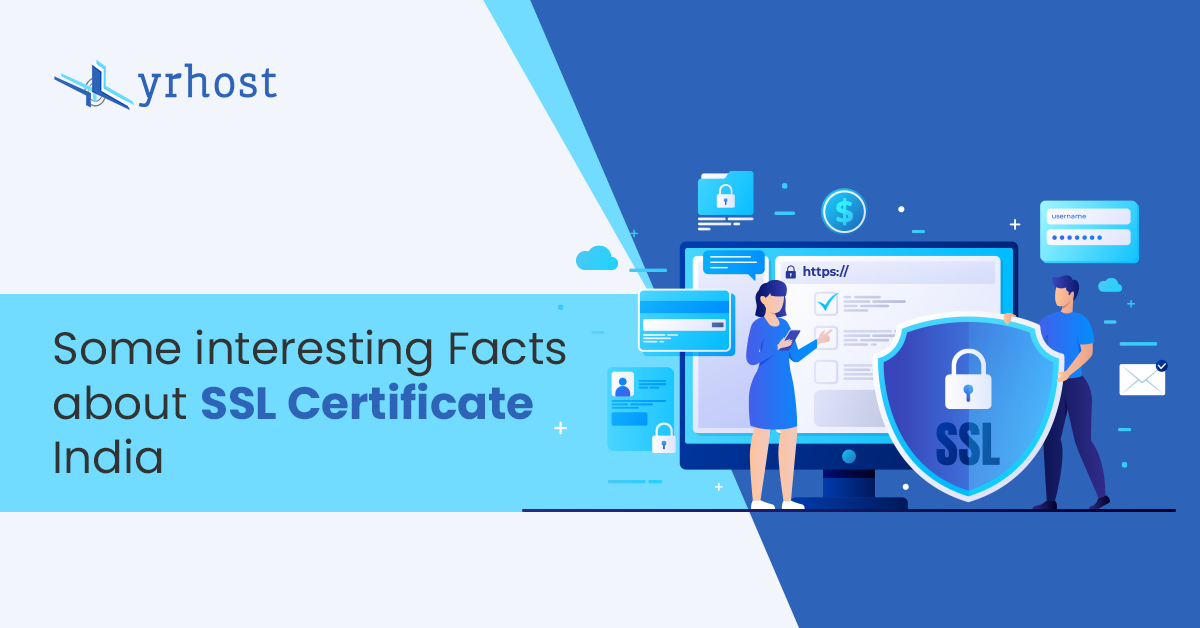Secure Sockets Layer (SSL) is a protocol for establishing encrypted connections between a web server and a client browser. When a user seeks to visit an SSL-protected website, their computer and the server engage in a series of protocol exchanges designed to keep all data in transit from prying eyes. SSL certificates are granted by certificate authorities (CAs) after they confirm the identity of the issuing organization and the security of the receiving party during data transmission. But at the same time, try to avoid cheap SSL certificates in India since most people will prefer them after some time and lose them.
Any modern website, particularly one that deals with online transactions, must have installed an SSL certificate. However, SSL certificates may be costly, so you may be considering whether you can get by with a less expensive option. Yes, it is possible to get a cheap SSL certificate India at a low cost; nevertheless, caution is advised. Many dubious businesses provide very low prices SSL certificates, which may not be up to scratch.
Take the time to verify that the business you’re purchasing from is legitimate. Make sure you know what kind of warranty or guarantee you’ll get with the certificate. If not, you may want to keep looking. An inexpensive SSL certificate may be the way to go if you want to save money.
How to get an SSL Certificate in India?
Websites that collect personal information, such as names, addresses, and credit card numbers, from their visitors should always use an SSL Certificate to ensure the safety of their users’ information. All data sent between the site and the user’s browser is encrypted, making it unreadable by hackers.
In India, acquiring an SSL Certificate is quick and easy. High quality and affordable web hosting services in India. Your web server must first produce a Certificate Signing Request (CSR). The domain name, business name, and contact details for your website will all be included in this CSR. A CSR enables you to buy an SSL Certificate from any provider. Certificate installation is the next step after obtaining your certificate. The installation will change your website’s address to start with https:// and encrypt all data sent between your site and its users.
What are the benefits of an SSL Certificate?
The Secure Sockets Layer (SSL) Certificate is a digital certificate that verifies the claimed ownership of a website and encrypts data in transit to the server. Millions of websites rely on SSL Certificates to keep customer data and communications private. SSL Certificates are distributed by reputable third-party organizations known as Certificate Authorities (CAs).
SSL Certificates provide the groundwork for reliable interactions. They encrypt data before it is transferred to the server and ensure the website is who it says it is. Information such as passwords and credit card details are safer from hackers while this is in place.
Visitors’ confidence in a website may be bolstered by using an SSL Certificate. The SSL Certificate proves the site is trustworthy and the owner cares about their users’ privacy.
Incorporating SSL Certificates into your website has several positive effects, which are listed below:
- Security is improved since data transferred to the server is encrypted using an SSL Certificate, making it more difficult for hackers to read and use.
- Google and the other major search engines prefer websites that employ SSL Certificates, meaning such websites will rank higher in search results.
- There is a direct correlation between having an SSL Certificate and increased sales and client loyalty because of the confidence it instills in website visitors.
- The adoption of SSL Certificates helps lower the expenses brought on by security issues like data breaches.
SSL certificate for website
A secure connection between a web server and a web browser is enabled by using a digital certificate called an SSL certificate. The certificate will include the website’s domain name and details about the company that controls it. Whenever a user initiates a connection to an SSL-protected website, the browser will first check the legitimacy of the site’s SSL certificate for website. The browser will only create a secure connection to the website if the certificate is legitimate. Secure Sockets Layer (SSL) certificates encrypt information such as passwords and credit card data.
How can an SSL certificate Improve your website security?
Website Security Certificate is also known as SSL Certificate. Obtaining an SSL certificate is a significant first step in making your website more secure. The encryption of user-to-website communications is an effective measure against eavesdropping and information theft. As a bonus, it may assist in preventing phishing assaults by confirming your website’s legitimacy. Finally, the HTTPS protocol adds another degree of protection if your website is equipped with an SSL certificate.
